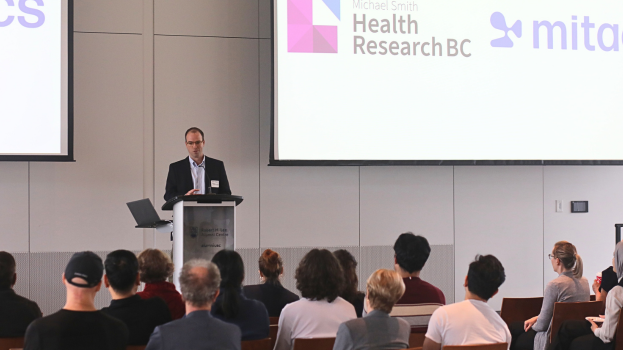Helping young people overcome climate anxiety
22 April 2025

When thinking about the impacts of climate change on health, it’s easy to picture forest fire smoke or extreme weather events like BC’s 2021 heat dome that caused hundreds of deaths.
But what about its effect on mental health?
“When I first started exploring the health impacts of climate change, there was very little acknowledgement of the mental health impacts. Most people thought of climate change as a far-off problem,” says Dr. Kiffer Card, a researcher at Simon Fraser University. “But one of the most severe impacts we’re seeing right now is on mental health and wellbeing.”
Kiffer and his research team, co-led by Dr. Arden Henley, Executive Director of the Green Technology Education Centre, are uncovering the emotional toll that climate change is having on younger generations. Supported by a Michael Smith Health Research BC Convening & Collaborating (C2) award, in partnership with Mental Health Research Canada, the team held focus groups with young people aged 16-24, digging into their reactions to climate change.
And these young people are deeply distressed — feeling anxious, uncertain about the future, and even betrayed by inaction from society’s leaders.
“It’s definitely a struggle to manage the anxiety because it’s very, very intense,” one youth said. “And what can you do when this is something that just is happening?…No one can change it.”
Others worried about whether changes would be made to shape their future for the better.
The focus groups gave youth the chance to not only voice their concerns but also shape their responses to the changing environment. They called for better climate education, stronger community engagement, and more accessible mental health support to help them build resilience.
The research team used the project findings to inform mental health professionals and policymakers. Kiffer and Arden are now leading an initiative to help professionals across the health, education, social services, and media sectors act on those findings. Their C2 award led to a $1.8 million investment by the BC government to create new programs, resources, and support services to address the mental health impacts of climate change.
“We’re delighted to witness how the collaborative efforts between Health Research BC and Mental Health Research Canada in providing seed funding are fostering the growth of innovative research like this,” says Akela Peoples, CEO at Mental Health Research Canada. “We look forward to strengthening our partnership and amplifying our shared impact.”
“Emotions matter. Human beings are inherently emotional, and those emotions are tied to how our bodies operate,” says Kiffer. “The health system tends to ignore the upsetting world and environmental events that shape our emotions. That’s what we need to change.”
Kiffer and his team have a clear path forward: equip young people with the support and resources they need to build resilience and be ready to face the future.
Learn more
- Repairing the Social Contract: Undertaking the Co-Design of Climate Distress Services for Young People in British Columbia
- Health Research BC partnerships and funding programs
- Mental Health Research Canada
- Green Technology Education Centre
Stay informed
Stay tuned for more exciting stories that highlight impacts being made across BC.
Subscribe to our newsletter and follow us on LinkedIn.
| Dr. Kiffer Card is Assistant Professor in the Faculty of Health Sciences at Simon Fraser University. He is also President of the Mental Health and Climate Change Alliance. |





